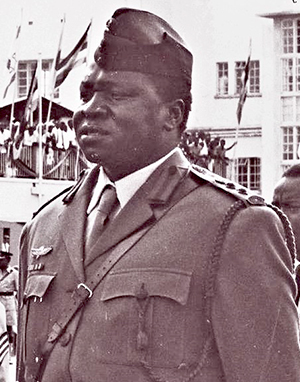Uganda plans to attract tourists with a museum dedicated to the brutal dictator Idi Amin and other violent episodes in the country’s history, including from the colonial era.
Uganda Tourism Board Chief Executive Stephen Asiimwe told the BBC that the museum would not be insensitive or voyeuristic.
“We want to put the record straight,” he said, adding: “History gets richer, it’s like red wine – it gets more interesting as the years go by.”

Idi Amin seized power in 1971, less than 10 years after Uganda’s independence (Creative Commons)
“I lived through the Idi Amin era as a young boy, my fellow students lost their parents to the regime,” he said.
“However you cannot run away from history. These are facts.”
Amin joined the British Army in his 20s, seizing power in 1971, less than 10 years after Uganda’s independence.
Some 400,000 people are believed to have been killed under his brutal, eight-year rule, and he expelled the country’s entire Asian population in 1972.
Atrocities committed by the Lord’s Resistance Army will also be documented, the tourism chief said.
Construction has not yet begun, but not everyone in Ugandan tourism is happy with the idea.
John Sempebwa, the deputy executive director of the tourism board, told VOA he disagrees with his colleagues who suggest Ugandans are ready to revisit the more painful details of their past.
“Which Ugandan is going to put up a museum and say you guys come here?” he said, adding, “It’s not ready because society is divided. There are people who are still around who don’t have good memories of Amin. Now, not only won’t they come, they might burn this place down.”
Photograph: Idi Amin seized power in 1971, less than 10 years after Uganda’s independence (Creative Commons)






